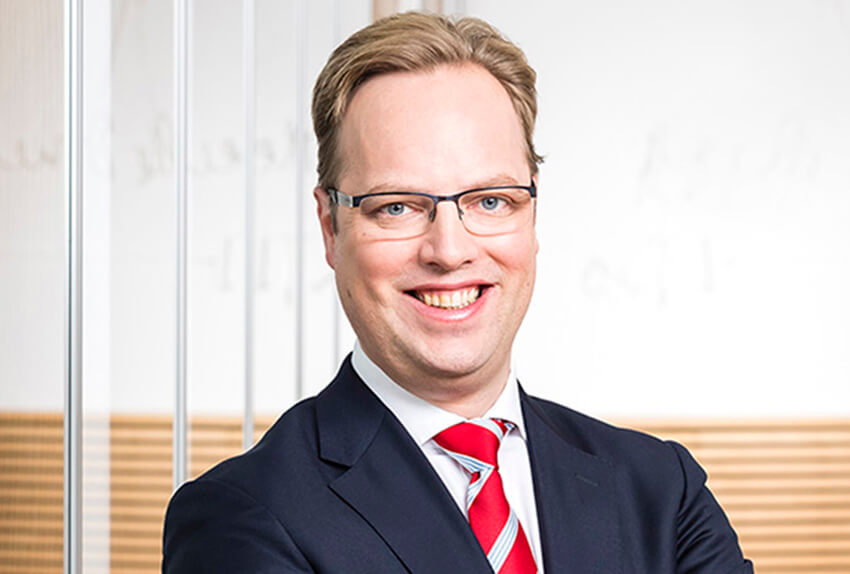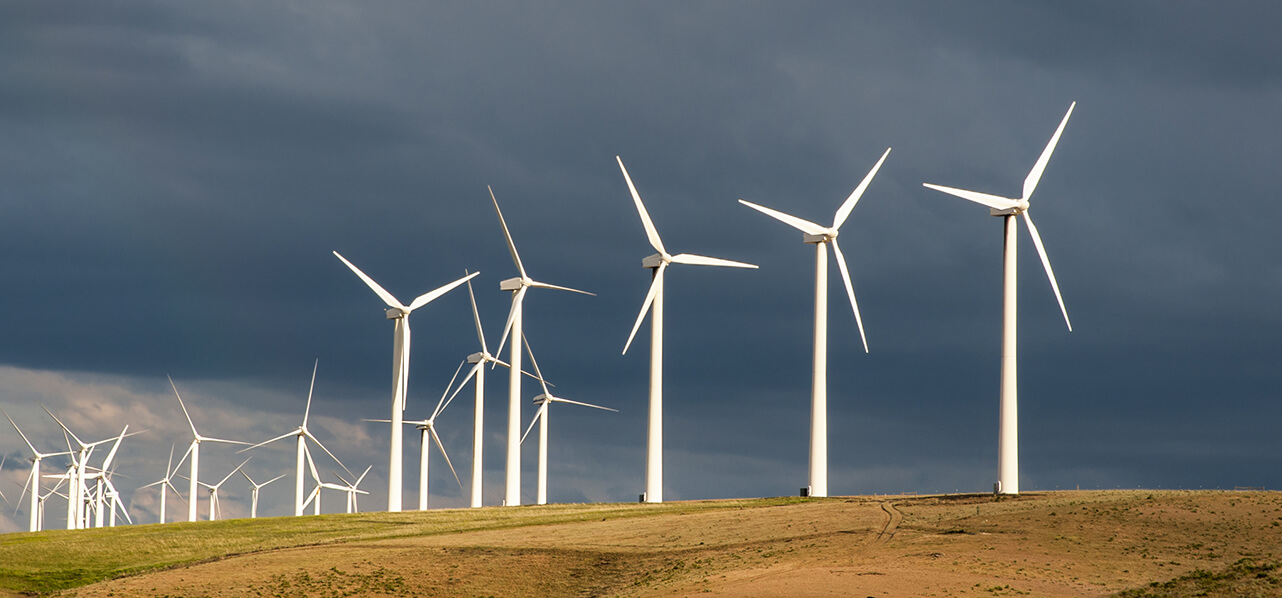Partner Hamburg
"In 2025, Germany will face complex challenges as well as promising opportunities in the energy sector."
Advent of a New Realism?
The roll-out of renewables has had its challenges in recent years, but on balance has undeniably been a success: In 2024, 54% of Germany’s gross power consumption was sourced from renewable energy. Conversely, the power sector might soon face diminishing returns in which every increment of additional decarbonisation requires increasingly more effort. In 2025, much will depend on finding new low hanging fruit and disseminating the successes of the power sector into other sectors such as real estate, transportation and heavy industries.
2024 also saw the advent of a new realism which will likely set the frame of reference for 2025, too: Whilst climate change and decarbonisation are still part of a larger consensus, the last two years have firmly placed other considerations front and centre. Security of energy supply, system integration of renewables and the burden of high energy prices on the German economy are now regarded as equally important. This new realism will likely replace the former more idealistic approach and could lead to Germany embracing highly efficient CCGT power plants, CCS (Carbon Capture and Storage) and energy storage technology.
Much will depend on the new government following the elections scheduled for February 2025. Major legislative initiatives, such as the overhaul of the Energy Industry Act, the implementation of the RED III directive and the much-discussed potential introduction of capacity markets to promote CCGT and other thermal power plants to supplement the intermittent production from renewable energy, were put on hold when the coalition between Social Democrats, Green Party and Liberal Party fell apart in late 2024. How much the new government’s focusses on resuming these initiatives will determine the direction of travel for 2025 and beyond.
Renewables Roll-Out
"In 2025, much will depend on finding new low hanging fruit and disseminating the successes of the power sector into other sectors such as real estate, transportation and heavy industries."
2024 presented a mixed picture in terms of installing new renewable energy capacity. Whilst solar/PV met its targets, onshore and offshore wind did not. Solar/PV arguably benefitted from an already quite lean permitting regime and the (still) significant number of roof-tops to tap into. Conversely, onshore wind – widely seen as the backbone of Germany’s energy transition – is still impacted by long and convoluted planning procedures as well as supply chain disruptions, therefore failing to meet its targets by a significant margin. Offshore wind saw auction prices coming back in 2024 following 2023’s excesses, whilst at the same time also failing to meet its targets (albeit only slightly).
For 2025, we anticipate numerous developments the outcome of which will determine the future success of rolling out renewable capacity in Germany:
- 2024 saw a significant uptick in planning permits for new onshore wind projects. This is widely credited to new legislation which accelerates the planning processes for onshore wind turbines. On that basis, it is also expected there will be an uptick in new-build onshore wind capacity in 2025. It will be interesting to see whether this is due to resolving the current backlog of permitting procedures (and will therefore normalise again) or whether the uptick is sustainable for the long-term;
- repowering continues to be a very active market. 2024 again saw a number of big portfolio transactions fuelled by repowering potential and we expect this trend to continue, given the ageing fleet of “first wave” onshore wind projects in Germany;
- in offshore wind, the shift from auctions for non-investigated sites to pre-investigated sites will continue in 2025. Whilst the former are mainly auctioned on the basis of price, the latter combine price criteria with qualitative criteria. A key question will be whether this leads to a more diverse playing field and more innovation; and
- since the abolition of the “EEG surcharge” (which was to be paid by end-consumers), the financial burden to promote renewable energy in Germany is funded directly via the federal budget. Reportedly, €18.5bn had been paid from the federal budget in 2024. According to some projections, this could rise to €29bn by the end of 2029. Any new government elected in 2025 will therefore carefully consider how this will impact future federal budgets.
Grid Stability
"For 2025, we anticipate numerous developments the outcome of which will determine the future success of rolling out renewable capacity in Germany."
Due to the intermittent nature of renewable energy, system integration and grid stability will remain key issues. This was clearly demonstrated when power prices spiked during a recent “Dunkelflaute” in November and December 2024 and has been highlighted by many German energy utility managers. Sweden and Norway also criticised Germany for not having established a reliable means of dealing with such situations. This criticism came as the high prices in Germany also impacted power prices in Sweden and Norway.
Germany has thus far discussed several options to address these concerns but failed to agree any comprehensive solutions. One major task for the next German government will be to provide the legislative set up required for the tendering of new (hydrogen ready) gas fired power plants as the legislative agenda promoted by the previous German government halted on its collapse. Rapid action here is key as new gas fired power plants are needed if Germany still plans to end lignite power production by 2030. In this respect, the planned “Power Plant Security Act” is of major importance as it promotes modernisation and the construction of new flexible gas and hydrogen power plants to ensure sufficient power supply at all times.
A particular focus should also be grid-scale battery energy storage systems. Germany currently has a lively market with many projects being developed and the Federal Ministry of Economics and Climate Protection planning investment incentives and subsidies for BESS in the coming years. Uncertainties remain, however, regarding the regulatory framework. Firstly, a solution to the issue of to what extent BESS operators must participate in the construction costs of grid connections is required. Hopefully, a decision of the Federal German High Court, which is expected in Q2 2025, will provide clarity. For the long-term, additional guidance from the German Federal Network Agency is required. The long-awaited new provisions on grid reservation procedures must also be included in the applicable laws to provide greater clarity compared to the status quo.
Energy Security
Energy security is of vital importance and Germany will need take great care in sourcing suppliers. In terms of both natural gas and hydrogen, Germany needs diverse sources of supply for the foreseeable future.
"Due to the intermittent nature of renewable energy, system integration and grid stability will remain key issues."
Securing energy supplies offers numerous strategic investment opportunities, notably in developing LNG infrastructure and storage facilities and promoting hydrogen projects. Strategic partnerships at a European level are crucial to securing long-term supply and there are also significant acquisition opportunities given the growing need for energy storage and distribution infrastructure.
It should be noted that the laws on foreign direct investment and acquiring critical infrastructure have become significantly stricter. It may therefore occur that an asset is regarded as critical infrastructure which may not occur as such critical infrastructure at first glance. Therefore, interested parties may wish to check applicable thresholds already when considering the acquisition of an asset. Whilst we do not expect a further tightening of the applicable rules, the status quo needs to be observed and should be considered when evaluating energy acquisitions in Germany.
Energy Policy
All the political parties likely to be part of the next federal government clearly favour renewable energy, so any reversal of previous supportive measures taken by the outgoing government are unlikely. However, whether further acceleration measures will be taken will largely depend on whether the Green Party will be part of the new government. Irrespective of the new government’s composition, a comprehensive amendment to the Renewable Energy Sources Act (EEG) is imminent. Changes to the subsidies it provides are planned – e.g. abolishing the subsidies for new plants when power prices are negative. Further, grid operators should also be able to control the feed-in of smaller installations which is currently not the case. This would also allow for more grid stability.
"Securing energy supplies offers numerous strategic investment opportunities, notably in developing LNG infrastructure and storage facilities and promoting hydrogen projects."
A draft bill amending the Energy Industry Act is now open for review containing new rules regarding overbuilding of feed-in capacity at grid connection points amongst others. This will make projects combing solar, wind and battery storage at the same grid connection point more complex but also significantly improve grid stability. Such combined projects offer huge opportunities for investors to make them commercially viable using AI-based systems for optimisation.
The development of electricity prices, particularly for industry, is becoming ever more important politically. The new government will likely take measures to limit industrial electricity prices. Reducing electricity taxes and additional grid fee exemptions are also being discussed. Whether these (and additional measures) can provide the required relief without causing new concerns remains to be seen. Proposals to reduce grid fees based on how quickly off-take in times of low feed-in into the grid can be made seem beyond the capabilities of certain industry sectors.
The federal Bundestag appears able and willing to pass a package of energy laws in what remains of this government’s term, despite a new election being less than a month away. According to the press, these include amendments to the Energy Industry Act including the Metering Point Operation Act, the Combined Heat and Power Act and the Greenhouse Emissions Trading Act as well as the so-called biomass package.
Conclusion
The German energy sector is entering a dynamic and challenging phase in 2025, with the key issues of grid stability, energy security and the expansion of renewable energy offering both risks and significant opportunities to those prepared to invest in the new technology that will drive infrastructure projects going forward. Whilst political uncertainties may delay progress, the legislative proposals currently being discussed suggest a new and exciting future for the sector.
Key contacts
Key contacts
Partner Hamburg
Partner Hamburg
Partner Düsseldorf






